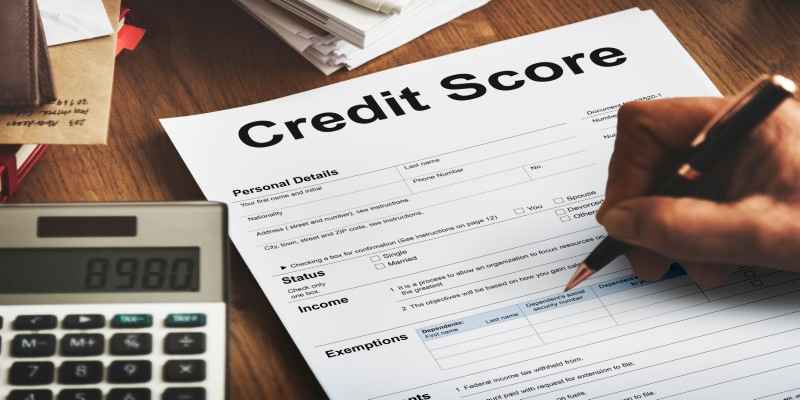Advertisement
Dealing with collections on your credit report can be stressful and frustrating. Collections can significantly impact your credit score, making it harder to secure loans, credit cards, or even rental agreements. While having a collection listed may seem like a permanent mark on your financial history, there are ways to remove it from your credit report. In this guide, we'll walk you through the steps to take to remove collections, whether they're there in error or a result of unpaid debt, and how you can restore your credit health over time.

When you fail to pay a billwhether it's a credit card, loan, or medical debtyour creditor may eventually send your debt to a collection agency. This agency takes over the task of recovering the money you owe. Once your account goes to collections, this information is reported to credit bureaus and shows up on your credit report, usually causing a significant drop in your credit score.
Collections remain on your credit report for up to seven years, even if you've paid off the debt. However, the impact on your credit score lessens over time. Removing collections from your credit report, especially early on, can give your credit score a much-needed boost.
Steps to remove collections from your from credit report.
Before you can remove collections from your credit report, it's essential to know exactly what's listed. Start by getting a duplicate of your credit report from the significant and major credit bureausEquifax, Experian, and others. You're free for one credit report from each bureau per year, which you can obtain at AnnualCreditReport.com.
Once you have your reports, carefully review the collection accounts listed. Check for inaccuracies, such as debts that don't belong to you, incorrect amounts, or outdated information. Mistakes on credit reports are more common than you might think, so it's worth scrutinizing every detail.
If you find any errors in the collections listed on your credit report, you have the right to dispute them with the credit bureau. To dispute a collection, you'll need to provide documentation proving that the debt is either incorrect or doesn't belong to you. This could include statements, payment records, or even letters from the original creditor.
The credit bureau will investigate your dispute and typically respond within 30 days. If they find your dispute valid, the collection will be removed from your report, and your credit score may improve as a result. This is one of the most straightforward ways to remove collections from your credit report if errors are involved.
If the collection listed on your credit report is accurate and you owe the debt, you may still be able to get it removed. One common method is to negotiate a "pay-for-delete" agreement with the collection agency. In a pay-for-delete arrangement, you agree to pay the outstanding debt (or a portion of it), and in return, the collection agency will agree to change or remove the collection account from your credit report.

It's important to get this agreement in writing before making any payments. Without a written agreement, the collection agency may still report the debt as paid, but the collection will remain on your credit report. While pay-for-delete contracts aren't guaranteed, many collection agencies are willing to negotiate to recover some of the debt.
If you've already paid off the collection or are in good standing with your creditor, you may be able to request a goodwill deletion. A goodwill deletion is when a creditor or collection agency makes sures and agrees to remove the collection from your credit report as an act of goodwill. This approach works best if you've already paid the debt or if the collection was a result of an unexpected financial hardship that has since been resolved.
To request a goodwill deletion, write a polite letter to the collection agency or original creditor who will tell your situation and will ask them to remove the collection and do the entire process. While this method isn't always successful, it's worth a tryespecially if you have a history of on-time payments with the creditor.
Another option for dealing with collections is to settle the debt for less than the full amount owed. Once the debt is settled, it will be reported as "settled" or "paid settled" on your credit report, which may still negatively impact your score but less so than an unpaid collection.
Although settling a debt won't automatically remove the collection from your credit report, some collection agencies may be open to removing it if you negotiate as part of the settlement. Similar to pay-for-delete, this negotiation should be done in writing.

If you're unable to remove the collection through disputing or negotiating, the last option is to wait for it to fall off your credit report. Collections generally remain on your report for seven years from the date of the original delinquency. Over time, the negative impact of the collection will decrease, especially if you continue to make on-time payments on other accounts and maintain responsible credit habits.
While this method doesn't offer immediate relief, it can still be effective in the long run. If you're close to the seven-year mark, simply waiting may be your best option, as the collection will eventually drop off naturally.
Dealing with collections on your credit report may seem overwhelming, but there are several ways to address and remove them. Whether you're disputing errors, negotiating with collection agencies, or simply waiting for the collection to fall off your report, each step brings you closer to improving your credit score. The key is to take action and remain proactive in managing your financial health. With persistence and a solid plan, you can successfully remove collections from your credit report and set yourself up for better credit in the future.
Advertisement

By Tessa Rodriguez/Mar 16, 2025

By Celia Kreitner/Jan 07, 2025

By Kristina Cappetta/Dec 25, 2024

By Mason Garvey/Apr 15, 2025

By Triston Martin/Mar 17, 2025

By Celia Shatzman/Mar 18, 2025

By Sid Leonard/Apr 02, 2025

By Celia Shatzman/Dec 23, 2024

By Elva Flynn/Apr 02, 2025

By Sid Leonard/Oct 22, 2024

By Madison Evans/Nov 02, 2024

By Mason Garvey/Oct 24, 2024